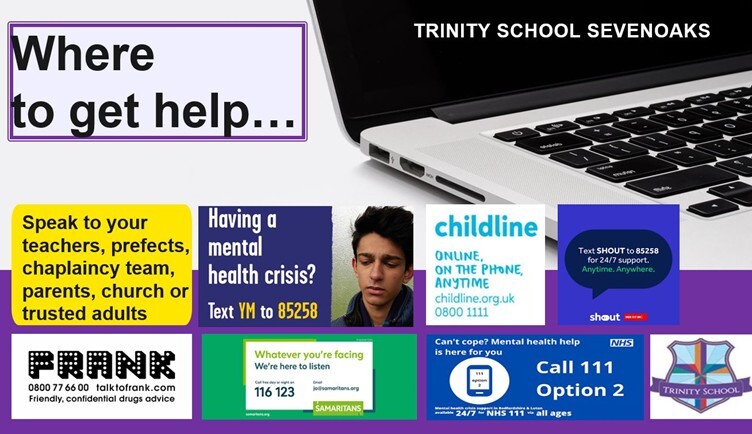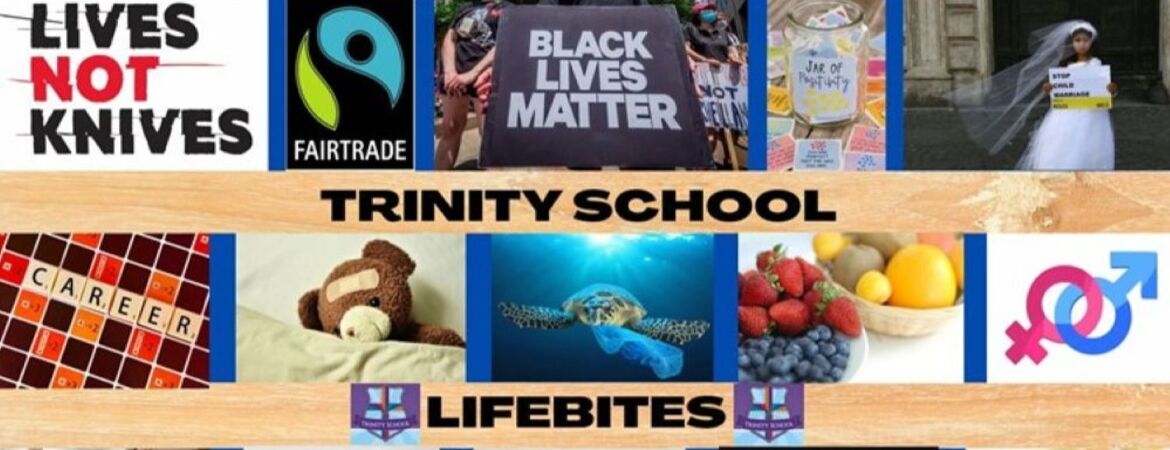Trinity LifeBites (PSHE & RSE)
Trinity LifeBites (PSHE & RSE)
"Personal development is a strength of the school and is well supported through the ‘Trinity LifeBites’ programme, covering personal, social and health education as well as relationships and sex education. The programme is exceptionally well designed to offer pupils a wide, rich set of experiences in a coherently planned way. The programme also covers careers which are carefully mapped out and actively supported through careers fairs, visiting speakers and external visits. The programme (Lifebites) is exceptionally well designed to offer pupils a wide, rich set of experiences in a coherently planned way."
Ofsted March 2024
At Trinity School, our PSHE (personal, social, health and economic) and RSE (relationship and sex education) programmes are called Trinity LifeBites.
The intent of our LifeBites programme is to equip young people to develop skills to fulfil their God-given potential. It helps them through critical thinking to develop informed, considered decisions and strategies as they navigate their way now and along the complex, dynamic road towards adulthood. This includes learning how to be resilient and knowing where to get support when needed.
This part of our curriculum is sensitive to our Christian ethos. It is designed as a spiral, building on learning in primary school and then throughout their time at Trinity from Year 7 to Year 13. This allows us to build and expand on ideas at appropriate times in their education. The LifeBites programme fosters students’ critical thinking and leadership skills, including the ability to respectfully discuss, debate, and pose thoughtful questions about complex topics across subjects.
Healthy relationships, mental and physical wellbeing are at the core of this. We ensure that we cover the DfE’s statutory guidelines, financial education and leadership. In addition, we include career guidance to support the career programme, allowing us to meet the Gatsby benchmarks.
The programme from Year 7-Year 13 is divided into broad topic areas including:
- Rights, Responsibilities and British Values
- Celebrating Diversity and Equality
- Staying Safe Online and Offline
- Health and Wellbeing
- Relationships and Sex Education
- Life Beyond School (including finance and career education)
- Trinity TELLS
Trinity LifeBites is delivered during form time each week, and across the curriculum where subject departments focus on areas relevant to their specialisms during the course of the year. For example, in computing students will learn about online safety, in science they will learn about puberty and the reproductive organs, while in history students will discuss anti-Semitism. In addition, the Heads of Key Stage and SLT also reiterate relevant areas during assemblies, such as media literacy and safeguarding. Our staff are trained and supported to deliver this aspect of the curriculum to fulfil our mission: ‘Education for life in all its fullness’.
LifeBites provides students with the opportunity to explore Christian perspectives on the topics and issues they are studying. At every stage, students are encouraged to think critically, ask questions, and come to their own conclusions.
Christian teachings considered in LifeBites include:
- Everyone being ‘made in God’s image’ and having intrinsic value.
- The Christian attitude of love, as exemplified by Jesus and reflected in biblical texts such as ‘love your neighbour,’ calls us to respect others and prioritise their needs.
- Compassion towards those who are victims of abuse.
- God as the creator of sex, and sex as a good gift.
- The teachings of the Bible that the place for sex is within lifelong marriage and within the context of a committed relationship rather than being merely a physical act.
As a school, we focus on healthy relationships every day, addressing issues such as sexism, bullying, racism, misogyny, homophobia, and stereotyping. These issues are specifically addressed in LifeBites but equally addressed through a broader school culture that does not tolerate them, and any occurrences are promptly identified and addressed. Our pastoral approach and behaviour expectations make this clear.
Please find below details of our programme which are also in each student’s planner. The programme may need to be amended from time to time. Each year we tackle new topics reflective of societal issues and changing statutory guidance, while circling back and building on key concepts such as internet safety, healthy relationships and mental wellbeing.
If you have any questions, please do not hesitate to contact the Assistant Headteacher, Personal Development, Mrs D Gale: dgale@trinitysevenoaks.com

Please find below our LifeBites Programme for each Year:-


